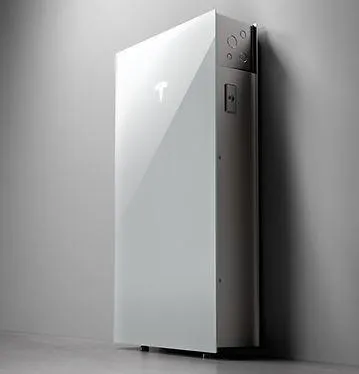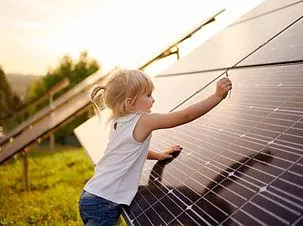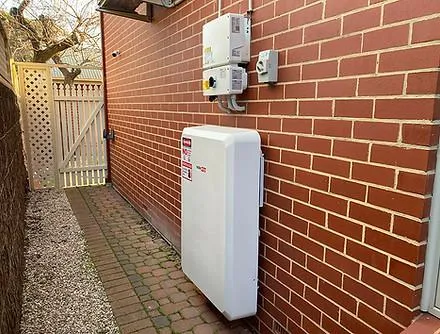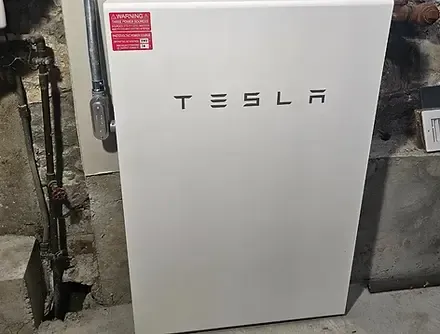75 North Main Street #2105 Randolph, MA 02368
BATTERY STORAGE

Standing By
In Your Time of Need
The Batteries we use work in a perfect harmony with our solar panels, capturing extra energy when the sun is shining and saving it for you to use at night or when the power goes out.
Enjoy clean energy all the time without worrying about big electricity bills. With a home solar battery, your house can flourish with energy independence.
Capitalize on the sun’s power even after it sets.

Safeguarded Power
Experience the reliability of battery
backup. Secure energy for your home throughout the night and during sporadic grid outages. Never have to worry about losing power again.

Take Charge of Your Energy
Take control of your energy usage with
full authority over your system. Cutting
edge battery storage technology allows you to decide how to manage your excess energy.

Optimize Sustainability
Diminish your reliance on the electrical
grid and ensure your energy is always renewable.Lower your carbon foot print and take a critical step toward a more sustainable world.
Our Batteries

SolarEdge Battery
95% Round Trip Efficiency
9.7 kWh capacity with 5 kW continuous power flow
Optimized efficiency through DC-coupling
10 year warranty with 70% capacity guaranteed
Water and dust protected
Indoor or outdoor installation

Tesla Powerwall 2
90% Roundtrip Efficiency
13.5 kWh capacity with 5 kW continuous power flow
AC-coupled to maximize space
Warranty options guaranteeing 10 years or 37.8 MWh
Water and dust protected
Indoor or outdoor installation

Tesla Powerwall 3
89% Solar Battery to Home Efficiency
97.5% Solar to Home Efficiency
20 kW capacity with 11.5 kWh continuous power flow
AC-coupled to maximize space
Warranty options guaranteeing 10 years or 37.8 MWh
Water and dust protected
Indoor or outdoor installation
Frequently Asked Questions
How do home batteries work?
Home batteries allow you to store your excess solar generated electricity for use at a later time. Usually, your system will tap into the battery at night after the sun has set or when the grid is down and therefore lessens your reliance on external energy sources.
What is a home battery backup?
A home battery backup is an energy storage solution offering reliable solar power with better control over energy usage.
What are the benefits of a home battery?
When the power is out, a house with batteries keeps its power. The energy stored in the batteries lets the house run for several days. If the battery is connected to solar panels, the panels can recharge it during the day, helping the house stay powered without the grid for a longer period of time.
Are there solar storage incentives available?
There are multiple incentives such as rebates and tax credits that apply to solar storage. Your state and utility company may offer varying incentives. Connect with your solar installer to learn about available incentive programs for you.
Will my home battery allow me to go off-grid?
You will still be connected to the grid when you add a home battery to your solar system but you’ll be able to run off stored power should the grid experience an outage.
If you purchase enough batteries, it is possible to never interact with the grid again.
Do I need solar panels to get a home battery backup?
You do not need solar panels to get a home battery backup if your primary goal is have a backup power source in case of outages.
While a home battery can function independently of solar panels, tying them together will drastially increase your batteries performance during a power outage because your system will charge your batteries during the day.
Where will my home battery be placed?
Batteries are typically placed in a garage or a utility closet.

FOLLOW US
QUICK LINKS
GET IN TOUCH
SUPPORT
© 2024 By SunCore Energy. All Rights Reserved.
